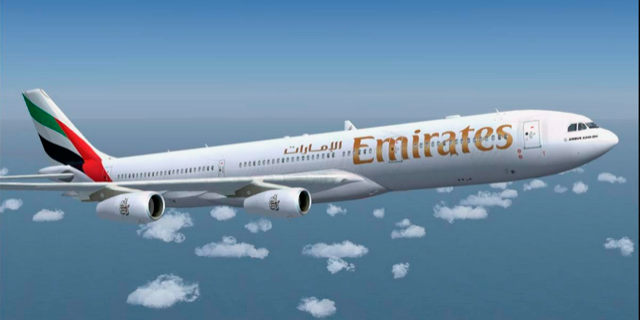The president of Emirates airline said the rare combination of higher oil and a stronger dollar, which usually move in opposite directions, represented a “double whammy” in terms of their impact on costs but that passenger demand remained strong.
“We have very strong summer bookings at higher prices,” Tim Clark told reporters at an airlines summit in Sydney, adding Emirates [EMIRA.UL] was monitoring those trends for any sign higher ticket prices were hurting demand.
Global airlines body IATA on Monday downgraded its profit forecast for the industry, citing higher oil and labor costs, but also said yields, a proxy for air fares, were expected to rise 3.2 percent this year.
IATA has cautioned that rising fares as airlines seek to make up for higher costs could temper growth in demand.
Clark, however, said he had not seen any sign of this yet and that the airline had managed to raise prices for the summer without hurting bookings. “The velocity of growth (in bookings) exceeds what we had seen last year,” he added.
Some analysts warn that price-sensitive passengers who upped their spending when fares were down amid lower oil prices, would quickly evaporate when prices moved higher.
“If airlines have to start putting prices up you can actually see a very quick fall in that growth rate,” said analyst Peter Harbison, chairman of CAPA-Centre for Aviation.
To combat higher oil prices, airlines are locking in fuel hedges, lowering capacity, raising fares and retiring older jets, industry executives at the annual meeting of the International Air Transport Association said.
Clark also said Emirates’ U.S. business had returned to growth after being hit by curbs on carrying large electronic devices in passenger jet cabins last year.
However, Emirates said it had no current plans to expand the so-called “fifth freedom” flights to the United States, services which have irked some U.S. airlines critical of the Dubai-based airline’s growth.
“Fifth freedom” flights are ones where an airline from one country operates between two different countries. For example, Emirates operates two such flights between Milan and New York and between Athens and Newark.
The United States last month agreed a deal with the United Arab Emirates and in January with Qatar to resolve claims from the three largest U.S. carriers that Gulf airlines had received unfair government subsidies.
UAE, as Qatar did in January, told the United States that the two UAE airlines have no current plans to add additional fifth freedom flights.
Some in the United States have suggested the deal stops the Gulf carriers from adding fifth freedom flights, but Clark said the agreement does not rule out such flights, Reuters reports.












